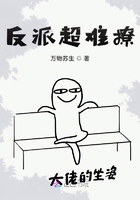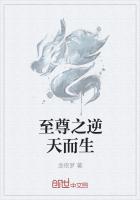The records of this industrial warfare are replete with lesser battles where thuggery joined hands with desperation in the struggle for wages.Evidence is not wanting that local leaders have frequently incited their men to commit acts of violence in order to impress the public with their earnestness.It is not an inviting picture, this matching of the sullen violence of the mob against the sullen vigilance of the corporation.Yet such methods have not always been used, for the union has done much to systematize this guerrilla warfare.It has matched the ingenuity and the resolution of the employer, backed by his detectives and professional strike-breakers; it has perfected its organization so that the blow of a whistle or the mere uplifting of a hand can silence a great mill.Some of the notable strikes have been managed with rare skill and diplomacy.Some careful observers, indeed, are inclined to the opinion that the amount of violence that takes place in the average strike has been grossly exaggerated.They maintain that, considering the great number of strikes, the earnestness with which they are fought, the opportunity they offer to the lawless, and the vast range of territory they cover, the amount of damage to property and person is unusually small and that the public, through sensational newspaper reports of one or two acts of violence, is led to an exaggerated opinion of its prevalence.
It must be admitted, however, that the wisdom and conservatism of the national labor leaders is neutralized by their lack of authority in their particular organization.A large price is paid for the autonomy that permits the local unions to declare strikes without the sanction of the general officers.There are only a few unions, perhaps half a dozen, in which a local can be expelled for striking contrary to the wish of the national officers.In the United Mine Workers' Union, for example, the local must secure the consent of the district officers and national president, or, if these disagree, of the executive board, before it can declare a strike.The tendency to strike on the spur of the moment is much more marked among the newer unions than among the older ones, which have perfected their strike machinery through much experience and have learned the cost of hasty and unjustified action.
A less conspicuous but none the less effective weapon in the hands of labor is the boycott,* which is carried by some of the unions to a terrible perfection.It reached its greatest power in the decade between 1881 and 1891.Though it was aimed at a great variety of industries, it seemed to be peculiarly effective in the theater, hotel, restaurant, and publishing business, and in the clothing and cigar trades.For sheer arbitrary coerciveness, nothing in the armory of the union is so effective as the boycott.A flourishing business finds its trade gone overnight.
Leading customers withdraw their patronage at the union's threat.
The alert picket is the harbinger of ruin, and the union black list is as fraught with threat as the black hand.
In 1880, Lord Erne, an absentee Irish landlord, sent Captain Boycott to Connemara to subdue his irate tenants.The people of the region refused to have any intercourse whatever with the agent or his family.And social and business ostracism has since been known as the boycott.
The New York Bureau of Statistics of Labor has shown that during the period of eight years between 1885 and 1892 there were 1352boycotts in New York State alone.A sort of terrorism spread among the tradespeople of the cities.But the unions went too far.Instances of gross unfairness aroused public sympathy against the boycotters.In New York City, for instance, a Mrs.
Grey operated a small bakery with nonunion help.Upon her refusal to unionize her shop at the command of the walking delegate, her customers were sent the usual boycott notice, and pickets were posted.Her delivery wagons were followed, and her customers were threatened.Grocers selling her bread were systematically boycotted.All this persecution merely aroused public sympathy for Mrs.Grey, and she found her bread becoming immensely popular.The boycotters then demanded $2500 for paying their boycott expenses.When news of this attempt at extortion was made public, it heightened the tide of sympathy, the courts took up the matter, and the boycott failed.The New York Boycotter, a journal devoted to this form of coercion, declared: "In boycotting we believe it to be legitimate to strike a man financially, socially, or politically.We believe in hitting him where it will hurt the most; we believe in remorselessly crowding him to the wall; but when he is down, instead of striking him, we would lift him up and stand him once more on his feet." When the boycott thus enlisted the aid of blackmail, it was doomed in the public esteem.Boycott indictments multiplied, and in one year in New York City alone, over one hundred leaders of such attempts at coercion were sentenced to imprisonment.
The boycott, however, was not laid aside as a necessary weapon of organized labor because it had been abused by corrupt or overzealous unionists, nor because it had been declared illegal by the courts.All the resources of the more conservative unions and of the American Federation of Labor have been enlisted to make it effective in extreme instances where the strike has failed.This application of the method can best be illustrated by the two most important cases of boycott in our history, the Buck's Stove and Range case and the Danbury Hatters' case.Both were fought through the Federal courts, with the defendants backed by the American Federation and opposed by the Anti-Boycott Association, a federation of employers.
The Buck's Stove and Range Company of St.Louis incurred the displeasure of the Metal Polishers' Union by insisting upon a ten-hour day.On August 27, 1906, at five o'clock in the afternoon, on a prearranged signal, the employees walked out.















